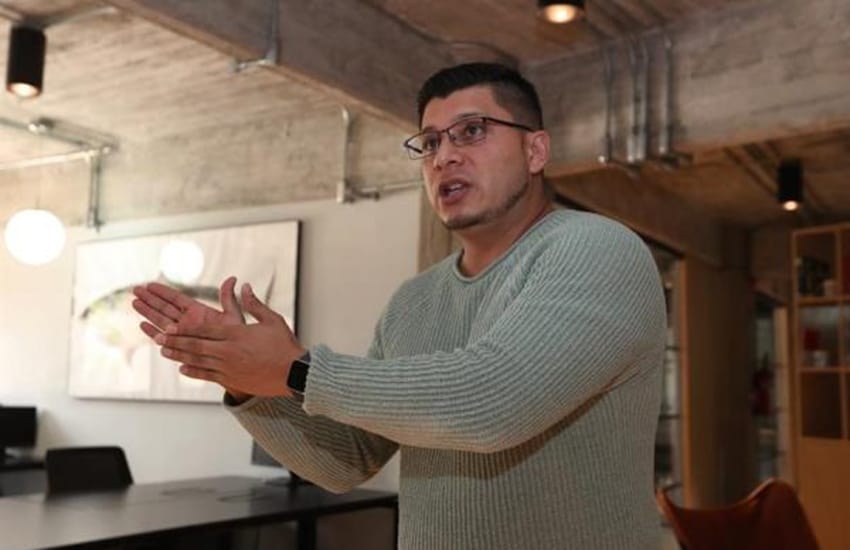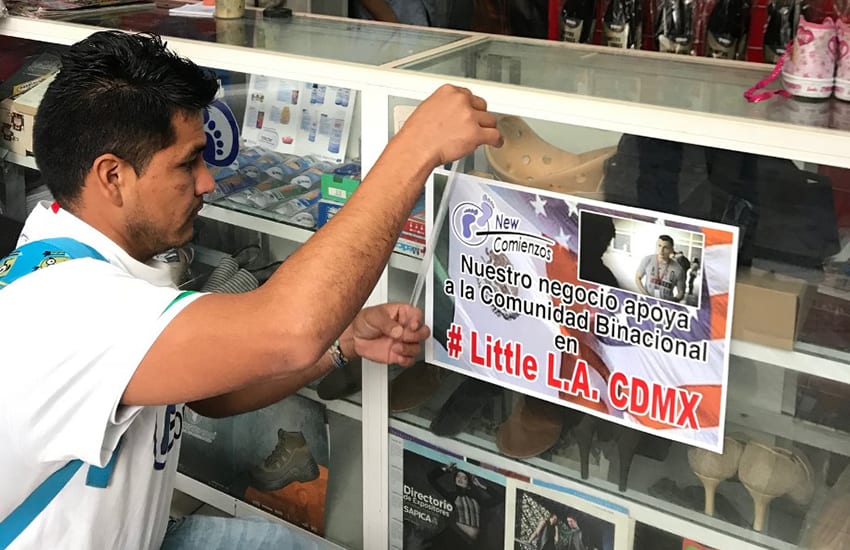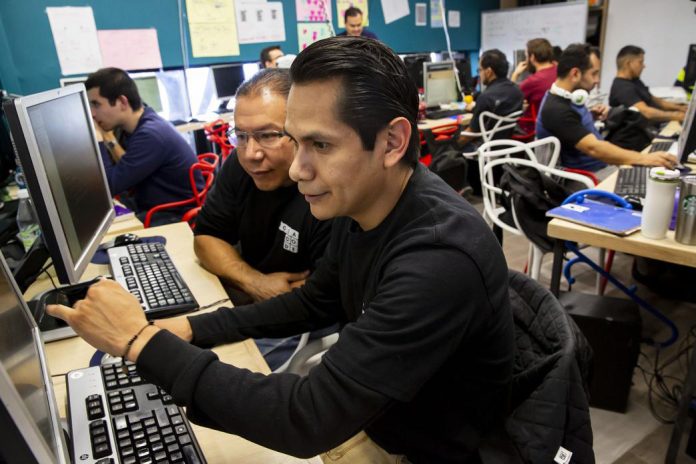Israel Concha — a noted resident in Mexico City’s Little L.A. barrio and a Mexican national who was abruptly deported to Mexico in 2014 three decades after his parents illegally brought him to the United States at age 4 — fervently believes he and other returnees like him “can live the American dream” in Mexico.
But he admits it is anything but easy.
Mexico receives thousands of repatriated Mexicans every month, mostly deportees from the United States. One category of these repatriated Mexicans, known as “Dreamers,” has gotten a lot of press over the past decade or so. They arrived in the United States as children and because of that received controversial protection under a program called Deferred Action on Childhood Arrivals (often referred to as DACA) and then, just as controversially, lost it.
Since the Obama administration, the repatriation of these young people to Mexico has been a large enough phenomenon to merit press attention on both sides of the border. These returnees to Mexico who were raised in the United States alternatively call themselves “Dreamers” or “binationals,” with the latter used to include people with different backstories.
The main difference between these particular returning Mexican nationals and others is that their many years living north of the border give them a distinct identity. And for this reason, many returnees’ experiences in Mexico parallel those of more traditional immigrant groups.

Binationals in Mexico face culture shock, legal and bureaucratic issues, discrimination and even bullying and violence because of how they speak Spanish (or don’t at all), because of their appearance and because of their economic connections to the United States. Most issues come from the idea that they are Mexicans and shouldn’t have these problems.
But they do, and many of the solutions that they develop use their ties back in the United States to create economic opportunities and create social organizations to help them advocate for their needs.
The largest organization of this type is aptly named New Comienzos (New Beginnings), based in Little L.A., which is located in the Cuauhtémoc borough of Mexico City. The organization’s name is apt both because it focuses on integrating returnees into Mexican society and because the name is in Spanglish.
“The Mexican dream does exist, it’s you!” proclaims New Comienzos’ website. Concha, the organization’s founder, was deported from the United States after a traffic stop. His backstory and why he created New Comienzos has been well-documented in the Mexican press as well as in Time magazine.
The organization draws heavily on the experiences, skills and personality of Concha, who studied business administration and started a transportation company in the United States. Like most other returnees, he found his way to Mexico City, one of the country’s major economic centers.
Over the past decade or so, U.S. companies have set up call centers in Mexico’s capital to take advantage of bilingual returnees, and these centers have become big business. The Mexican Institute of Telemarketing estimates that 190,000 people work in call centers in Mexico, most of them bilingual.

If someone in the United States calls for customer service, Concha says, even if it is just to order a pizza, there is a good chance they are talking to a returnee Dreamer in Mexico City. These jobs are not perfect by any means, but they provide at least an initial lifeline for returnees to pay the rent. While the pay is low, it is better than at many other jobs.
Concha began New Comienzos in 2015 while working at one of these call centers, sensing a need to provide support for the thousands of binationals coming into Mexico City and elsewhere. His entrepreneurship skills have served the initiative well. He worked out agreements with call centers to refer new employees, and in less than five years he reached out to federal, state and local governments in states where many binationals live.
However, he says, working with Mexican authorities has proven frustrating to say the least.
New Comienzos has had the most luck at the local and state level, especially in the state of Guanajuato and, to some extent, the Cuauhtémoc borough of Mexico City, where Little L.A. and most call centers are located.
As important as English-related employment opportunities like call center work and teaching are, they’re not enough to make sure that thousands of returning Mexicans are able to integrate into Mexican society. More options are needed, he believes.
During the Peña Nieto administration, he says, there was much interest in supporting the binational community, with even formal agreements signed by several agencies. However, when it came time to access the money for initiatives such as business loans, the money disappeared. Like many politicians, they were more interested in being seen as supporting binationals for their votes, Concha says.
It is even worse under the López Obrador administration, which has been hostile to nonprofits and will not talk to New Comienzos. In addition, the coronavirus pandemic has decimated many nonprofit organizations, and New Comienzos has felt the pinch as well, losing the offices they had in Little L.A.
This, and the lack of governmental backing, has led to the decision to send Concha to the United States to work on alternative sources of support. His arrival in the U.S. in May 2021 was heralded by the Los Angeles newspaper La Opinión.
Concha aims to spend the next year or so in the U.S. meeting with activist groups, the Mexican ambassador to the United States and academics and businesses to find new alliances for binationals in Mexico and those facing deportation in the future.
The organization also welcomes volunteers and other supporters of all nationalities. You can reach New Comienzos through its website and via its Facebook page.
Leigh Thelmadatter arrived in Mexico 18 years ago and fell in love with the land and the culture in particular its handcrafts and art. She is the author of Mexican Cartonería: Paper, Paste and Fiesta (Schiffer 2019). Her culture column appears regularly on Mexico News Daily.
